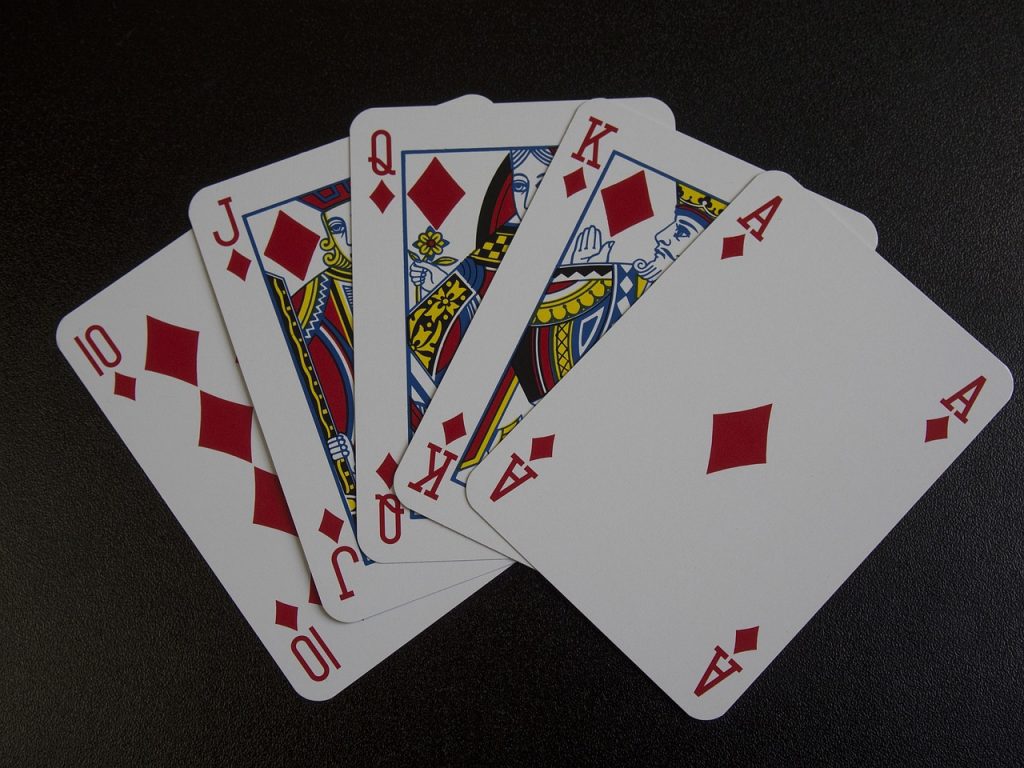Are you new to playing competitive poker? Have you ever wondered how the pros make such sophisticated decisions during their games? Below are some tips from experienced winning players to help give you an edge in your next winner-take-all poker game.
With knowledge of fundamental strategies, having success in a highly competitive setting like poker can be possible. Understanding these principles and developing clever ways to execute them could mean the difference between cruising into victory or walking away in defeat.
So get ready for some clutch strategies to increase your chances of success when it counts most because now is your chance to become an elite card shark.

Photo by Pixabay
Play tight during the game’s early stages.
Playing tight at first is an excellent tip if you aim to win your first competitive poker match. Rather than trying to play every hand you get dealt, it’s wise to be selective and careful with the cards you will play.
This tactic allows you to build an advantage in your chip stack while conserving your energy so you won’t get worn out before the game’s late stages. It also allows you to assess your opponents’ strategies, which can help during all-in situations later at the poker table. If you play tight early, it can give you a better chance of winning down the line.
Aggressively bet when you have a good hand.
When you have a good hand, go all-in or raise large amounts so that other players with inferior hands will avoid any opportunity and will be less inclined to call. Aggressive bets can also help keep the number of players in the pot low, giving your opponents fewer opportunities to pull out from a strong position.
Of course, you also want to consider your opponents’ betting patterns and not overplay things. But when played correctly, an assertive approach with solid hands can often carry the day and lead to victory when you play against competitive players.
Bluff when you think your opponents are weak.
Bluffing can be a great way to confuse and intimidate opponents and give you the edge. For it to be successful and effective, however, you must know when is the right time to bluff: when your opponents are weak. Assess your opponents’ behaviors on the table, body language, and betting patterns until you have determined their strengths and weaknesses.
When they show signs of falling back or appearing timid, use this time to your advantage by bluffing and confidently laying down bets. Remember that even if they call your bluff, they are not necessarily strong – they could have made an unwise decision.
With experience, you’ll better assess when is the right moment to start bluffing.

Photo by Pixabay
Pay attention to your opponents’ betting patterns.
Knowing your opponents’ betting patterns is essential for a successful win. Observe how much and when people raise, call, and fold to understand their strategy. Doing this can help you better decide when to hold, call, raise or fold yourself. If a particular opponent has been playing tight and would only call short amounts, increase the number if you raise. Otherwise, they may be more likely to call.
Likewise, keeping tabs on who likes to bluff and who always plays it safe can determine the best way to play against them. Avoid the pitfalls of reckless aggression or lazy conservative action by understanding your opponents’ betting tendencies; doing so can give you the edge to come out on top when playing free poker.
Keep track of how much money each player has left.
Monitoring how much each player has left can help you win any poker match. An inexperienced player’s major mistake is not knowing how many poker chips their opponents have left, ultimately leading to incorrect decisions throughout the game.
Knowing who has the most chips on the table lets you strategically plan your next move and maximize profits from other players. Additionally, if your opponents are running low on funds, they will be more likely to go ”all-in” down the road. This moment gives you a perfect opportunity to gain more chips while not risking too much money compared to them.
Ultimately, you must keep track of how much money each player has to win a competitive poker game successfully.
Stay calm and focused, even if you’re losing.
Maintaining a relaxed and collected attitude can be one of the most significant advantages when playing in a highly-competitive poker environment. It is easy to get disheartened if you start behind, but remaining focused can help you rebound.
Retaining composure during highs and lows allows poker players to look at each round logically rather than emotionally.
Doing this can help the player make well-informed choices that significantly increase their odds of winning, even against strong opponents. You should always address critical moments rationally; if things go wrong, take a break and return with a clear head.
Ultimately, this could make or break your chances of becoming a champion.
Be patient – don’t try to win the game in one or two hands.
One of the most important, if not the most valuable, tips to remember is to remain patient. Don’t let impatience or eagerness dictate your strategy; try to win the game gradually instead of looking for a big score in one or two hands.
Controlled and prudent play throughout the game allows you to build up a cushion and collect chips over time until you have a solid chance of victory. Importantly, this will enable players have consistent access to chips and size their bets accordingly as the cards play out.
Endurance can go a long way in winning poker tournaments; slow and steady wins the race.
Applying these tips will help you win your first winner-take-all poker game. Try these suggestions the next time you play online poker and see how they work for you. If you want to practice before playing for real money, plenty of online poker options can help you begin. Start playing today.
